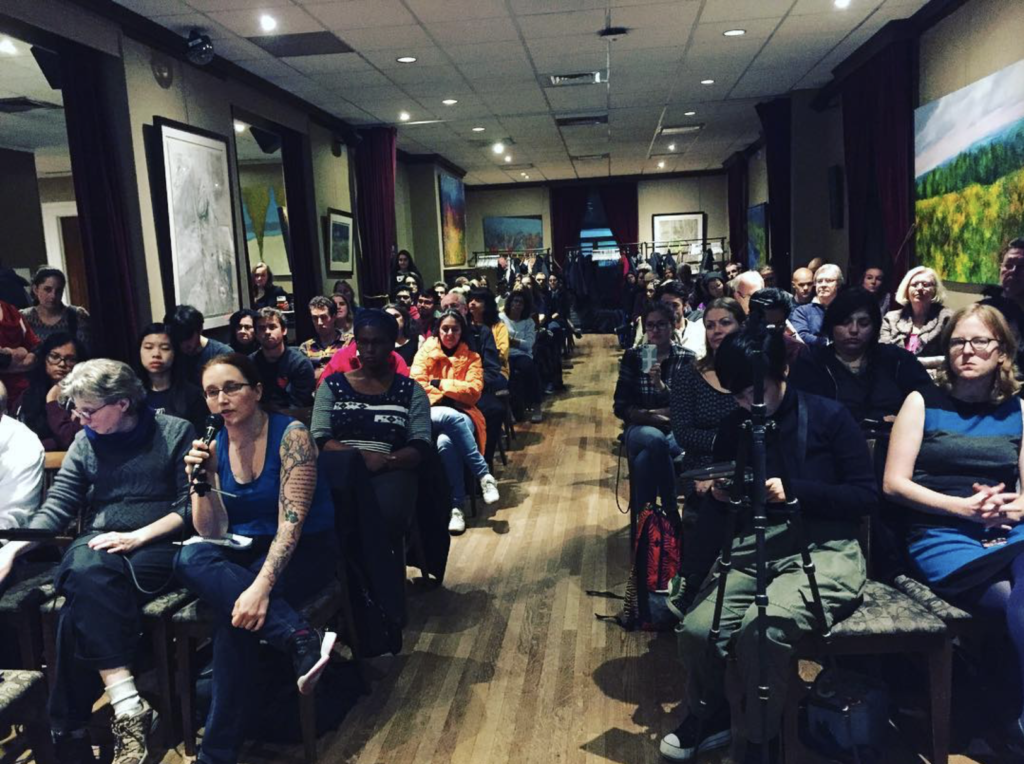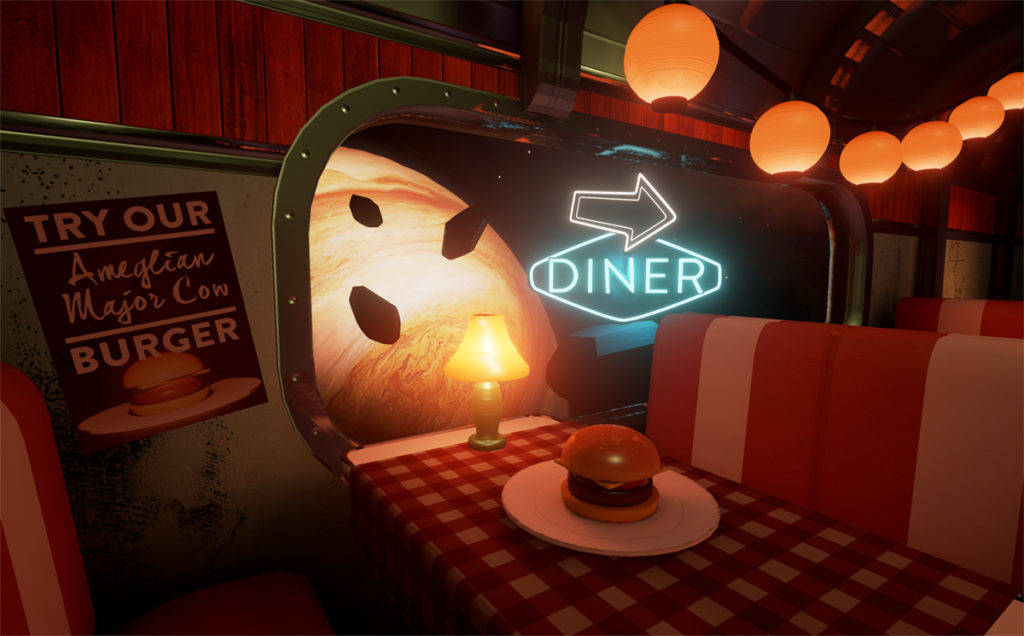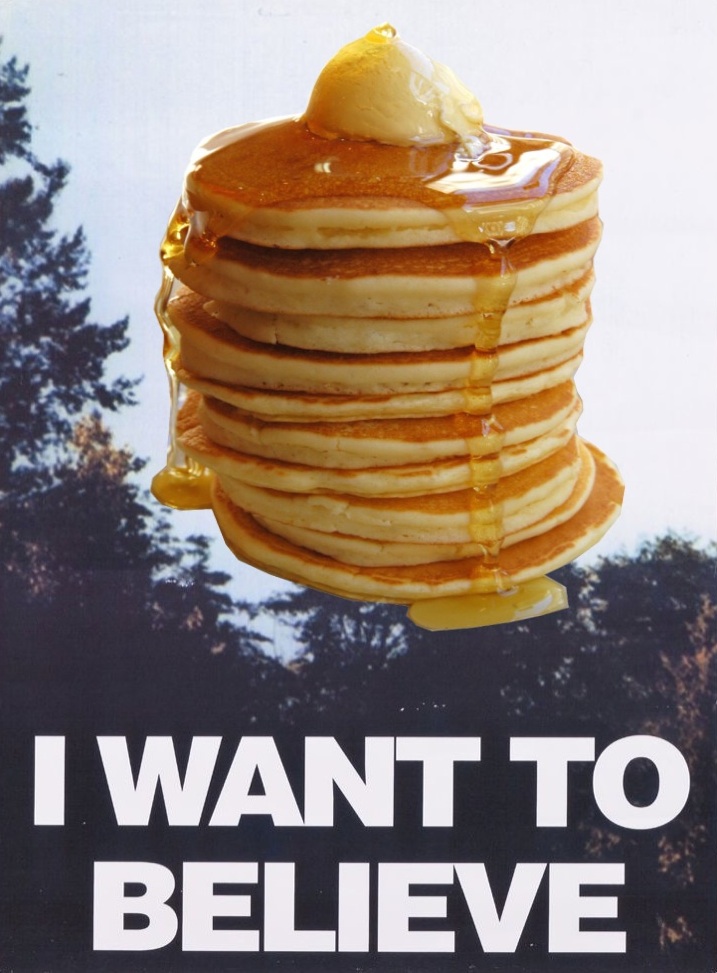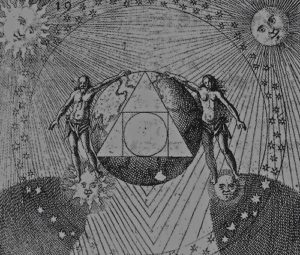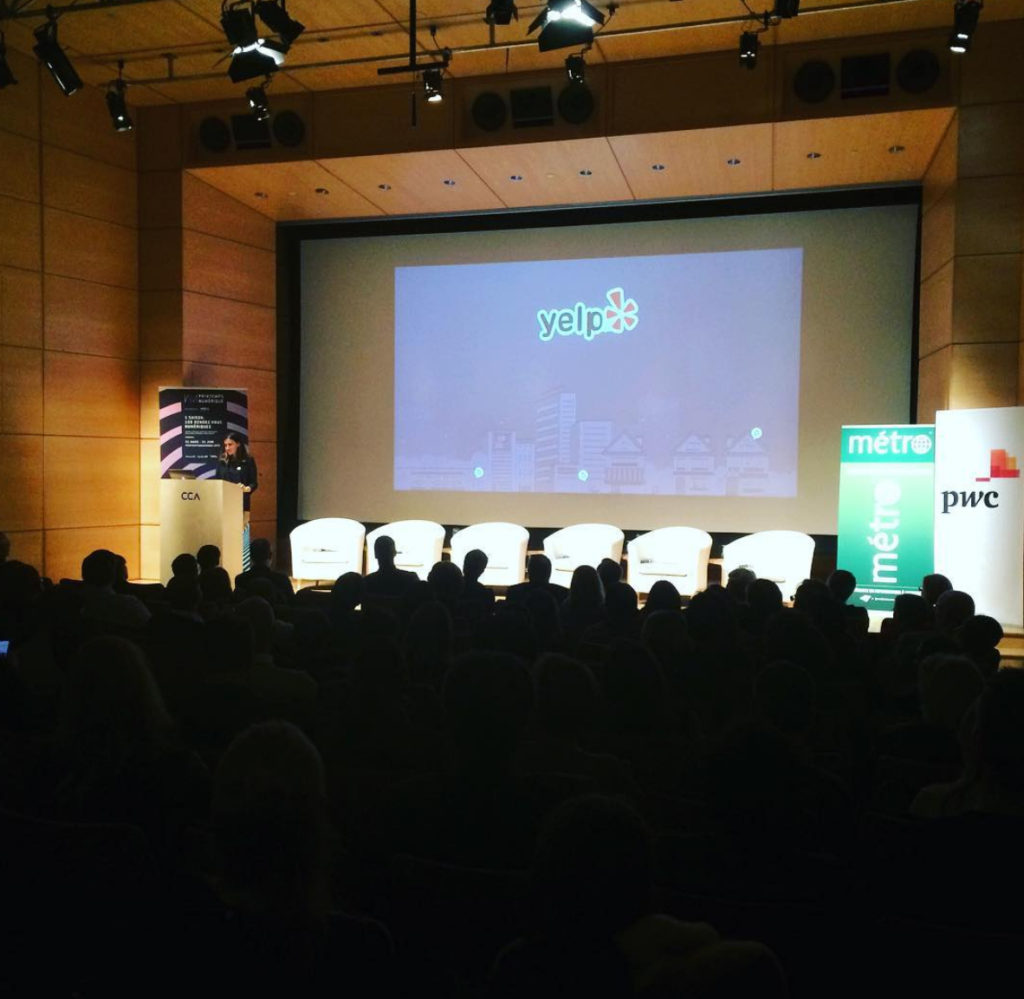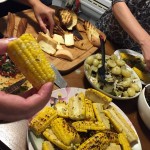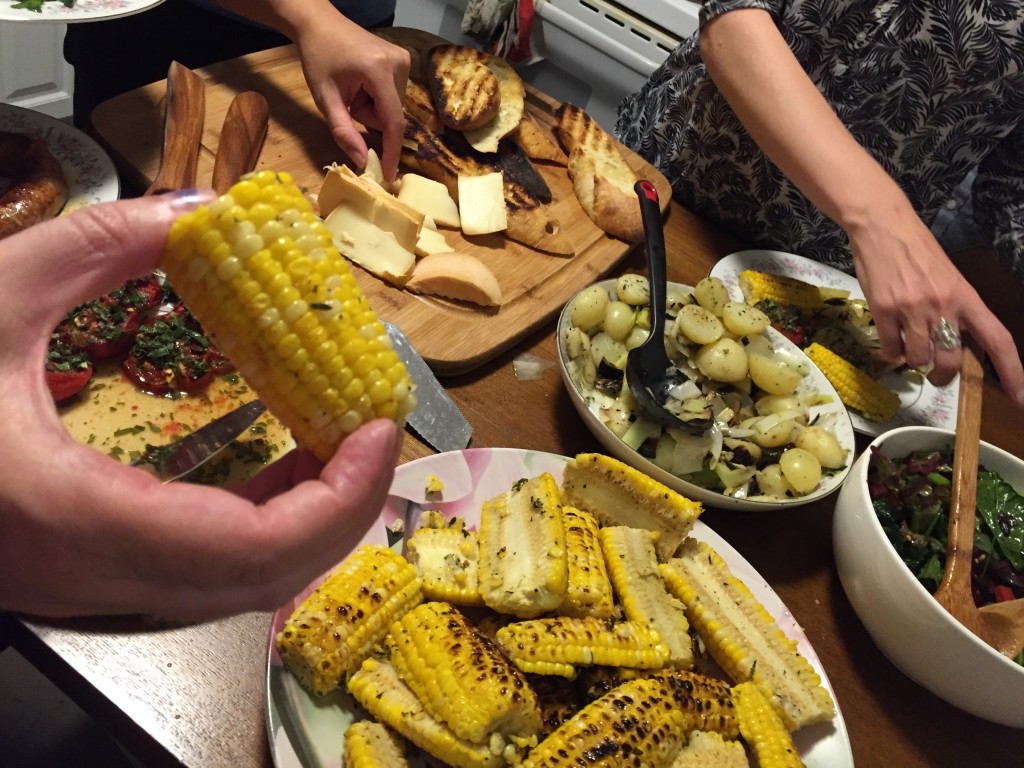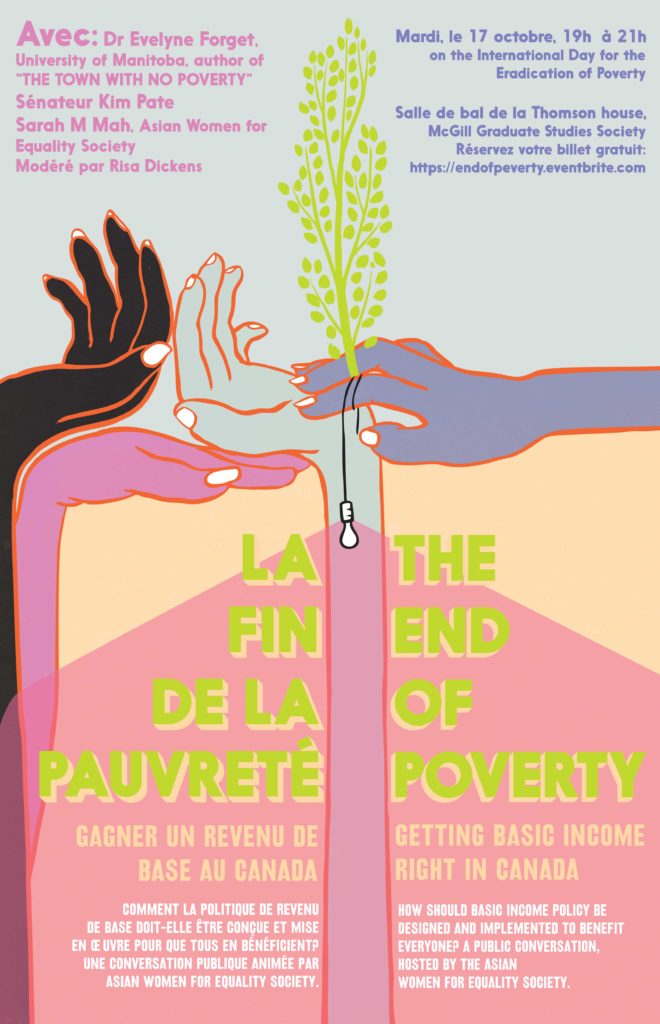
Poster by Maryanna Hardy
I recently co-organized and moderated a public event aiming to advance the conversation around Basic Income in Canada. The video from the livestream of that event is available here, and wanted to keep a record of my opening and closing remarks as well, so here they are.
Opening.
As we begin, we’d like to acknowledge that McGill University is located on unceded Indigenous lands. The Kanien’kehá:ka Nation is recognized as the custodians of the lands and waters we now call Montreal. Tiohtiá:ke (Montreal) is historically known as a gathering place for many First Nations. Today, it is home to a diverse population of Indigenous and other peoples. We respect the continued connections with the past, present and future in our ongoing relationships with Indigenous and other peoples within the Montreal community.
My name is Risa Dickens, I’ll be your host and moderator this evening. On behalf of myself and my collaborators in the Asian Women for Equality Society who bring you this event, I want to welcome you and thank you so much for coming.
I am both thrilled and nervous to get to stand in front of you today.
I’m thrilled to even get to meet these badass women, let alone to have a conversation with them about ending poverty in Canada, on today, the United Nations’ International Day for the Eradication of Poverty.
I think even saying the words out loud: that we aim to end poverty, has power.
And I’m moved to see so many of you here, with so many different and, let’s be honest sometimes conflicting passions and interests and stories and backgrounds, united in this project: tackling an end to poverty.
I’d love to know what brings each of you here. For myself there are a couple clear thoughts that motivate me: My grandfather had to leave school, and leave home at the age of 16 because the family farm in Smith’s Falls Ontario couldn’t support him anymore. Just a kid on his own he had to abandon his dream of becoming a teacher and he carried that loss his whole life.
Myself, end of grad school, I lived a couple years in increasingly bad financial straits that I worked hard to hide from anyone who knew me, until it reached a climax when I was unable to pay the rent, hiding from the landlord, as black kitchen waste literally bubbled up in the bathtub.
There was the time my dad pulled his own tooth because he couldn’t afford dental surgery, or when I found out that the hardest kids to deal with at my day camp job weren’t getting breakfast before coming, or when a man I loved stole 5000$ from me rather than appear a failure to his parents.
I could go on. I think we all could.
Who here would experience immediate emotional and practical relief by the grant of a basic income?
Please raise your hand if you would quit your current job? (Or just wink if your employer is here) Raise your hand if you would care for a family member? Raise your hand if you would dedicate yourself to a creative practice? Raise your hand if you would dedicate yourself to a cause? Raise your hand if you would get more education? Raise your hand if you would seek a different kind of employment? Raise your hand if you would live closer to nature?
Thank you. We see you.
When Sarah and I started to talk about this event we agreed that what we wanted to contribute to the Basic Income conversation in Canada was one: Feminist, and two: Practical.
Feminist because it’s Sarah’s experience as a rape crisis worker that brought her to working on Basic Income in the first place.
And because according to the Transition Home Survey, on a single day in Canada, 4,645 women were residing in shelters across Canada, 71% of them were escaping abuse.
We don’t have clear statistics on gender identity and homelessness in Canada; but we know up to 40 percent of youth experiencing homelessness identify as lesbian, gay, bisexual, transgender, queer, questioning, or two-spirited, whereas only approximately 7 percent of the general youth population identifies as LGBTQQ2. In other words, our young people face poverty to be who they are.
Gender roles and money are all tied up together, for everyone.
Men account for three-quarters of suicides in Canada. Going back to the Great Depression scholars see spikes in suicides immediately after a market crash. Canadian men between the ages of 50 and 69 had the highest suicide rate across both genders and all age groups in 2012. And reports show that job and money concerns – their identities are providers – are the most common causes of their stress.
Patriarchy and poverty fuck with us all.
We also wanted this conversation to be practical. Our question is: how can Basic Income be designed to benefit everyone? How do we get it, how do we pay for it, and how we make sure it isn’t used to justify austerity cuts that gut still-necessary social programs, or push economic inequality down harder onto undocumented workers in Canada, or labour markets in countries that don’t have a basic income guarantee?
So we worked on and circulated questions with our community partners and our esteemed panel and they will touch on these in the presentations and discussion which follow.
Before I introduce our panel, I want to note that we are honoured to have with us Community Respondents from End Poverty Now, Revenu de Base Quebec, Indigenous Women Against the Sex Industry, and Mouvement Contre le Viol et L’inceste, who have generously taken the time to prepare a few words and a question for the panel.
And we would love to bring your questions to the panel as well. In the interest of time please write these – as legibly and succinctly as you can – on the cue cards being gathered by our volunteers. We’ll do our best to get through them, and we also invite you to gather in the bar downstairs after our event wraps at 9pm to continue the conversation.
From the panel, I am so pleased to be able to introduce you to Dr. Evelyn L. Forget. Dr Forget is kind of the reason that contemporary conversations about Basic Income are happening at all.
She is the researcher who found and analyzed archived data from the landmark ‘Mincome Experiment,’ nearly 30 years after it was discontinued in Dauphin, Manitoba.
She wrote: “The Town with No Poverty—Using Health Administration Data to Revisit Outcomes of a Canadian Guaranteed Annual Income Field Experiment” among numerous publications, about the potential impact of basic income on health.
Dr Forget is an economist, professor in the Department of Community Health Sciences at the University of Manitoba, and Academic Director of the Manitoba Research Data Centre.
She is an adjunct scientist with the Manitoba Centre for Health Policy and a research associate with the MB First Nations Centre for Aboriginal Health Research.
Her current research focuses on the health and social consequences of antipoverty interventions.
Dr Forget, thank you so much for being here.
Next I’d like to warmly welcome Senator Kim Pate.
Senator Pate has spent the last 35 years working in and around the legal and penal systems of Canada. She has worked with and on behalf of some of the most marginalized, criminalized and institutionalized women and girls as the executive director of the Canadian Association of Elizabeth Fry Societies.
Senator Pate is a member of the Order of Canada, a recipient of the Governor General’s Award, and five honourary doctorates, and numerous other awards. Her extensive list of publications, national and international speaking engagements, and her strategic intervention and advocacy for substantive equality speak to her commitment to social, economic and cultural change.
She has strongly advocated for a guaranteed livable income including in a speech today on the floor of the senate.
Senator, thank you for your voice and for your work and thank you so much for being here.
Lastly on our panel today is my collaborator in creating this event, and a representative of front lines anti-poverty work in Canada, Sarah M Mah. Sarah produced this event while preparing for her final Phd thesis defense here at McGill.
Sarah is a third generation Canadian-born Chinese woman raised in Vancouver, BC. Her family was among the early Chinese immigrants levied the head tax in the late 1800’s, as well as those who left rural China in the 1950’s in search of a better life in Canada.
Formally trained in biology, epidemiology, and geography to examine the geo-social determinants of health, her feminist activism began as a front-line anti-violence worker at a rape crisis centre and transition house in BC. Sarah continues her work as a member of the Asian Women for Equality Society – for which basic income remains a central campaign to help to end sexualized racism and achieve women’s equality and economic security.
Sarah, thanks for being here and for all your hard work over the past months.
Our panelists have prepared thoughts to share with you so let’s jump right in…
Closing.
Since it is 8:55 we are going to end now with a quick thank you and closing remarks before inviting you to join us downstairs.
Firstly, myself and the Asian Women for Equality Society would like to thank the panelists for your work, and your time, and your generous effort to come to Montreal to join us.
Dr Forget, Senator Pate, you were at the very top of our dream list when we began planning this event, and the warmth with which you received our invitation helped us believe in the possibility not only of pulling this event together, but in the actual goal of ending poverty, so thanks for your courage and example.
If folks are interested in getting to learn more please note, Dr Forget will speak at the Institute for Health and Social Policy tomorrow October 18th, at 10 am, there will even be a light lunch served! Information on attending can be found on the Facebook event for today’s panel.
We would also like to thank
- Our community respondents
- Those groups and and individuals who attended consultation meeting
- The Institute for Health and Social Policy for helping us bring Evelyn here
- Bliss and Sonia and the staff of Thomson House.
Our simultaneous interpreters:
Doris, Sophie, Peter
Our friend and artist collaborator, Maryanna Hardy who created the image for this event.
The 12 incredible humans who are volunteering here with us tonight at the door, on photography and video, and more.
Personally I’d like to thank Sarah Mah for her passionate and joyful and tireless work.
And lastly, and again, thank you for coming.
I want to send you off with a rallying cry. I want to arm you with a promise you can carry with you when you face the work of dismantling inequality. I hope you’ll remember we are with you.
These words by Leonard Cohen always give me courage:
Any system you contrive without us
will be brought down
We warned you before
and nothing that you built has stood
Hear it as you lean over you blueprint
Hear it as you roll up your sleeve
Hear it once again
Any system you contrive without us
will be brought down
You have your drugs
You have your guns
You have your Pyramids your Pentagons
With all your grass and bullets
you cannot hunt us any more
All that we disclose of ourselves forever
is this warning
Nothing that you built has stood
Any system you contrive without us
will be brought down.
